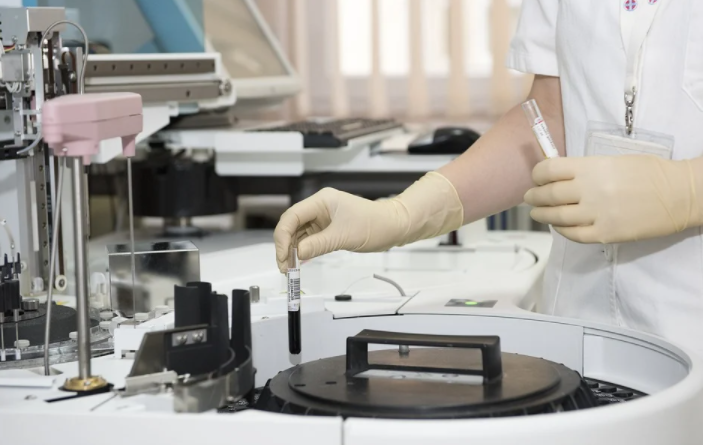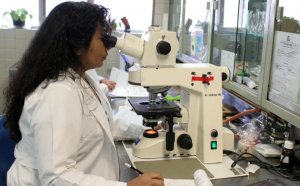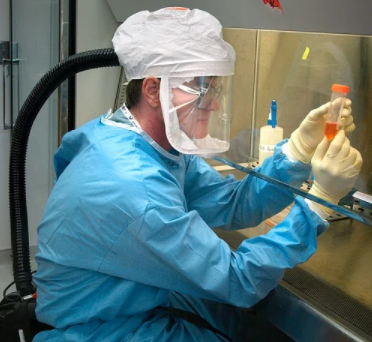Simulation-based learning is a good solution for any healthcare students currently facing the major and common issue in the world – COVID-19 Pandemic. You can learn more about this learning method on this website. On the other hand, the classic strategy to witness and observe the patient behavior and diseases are no longer accepted due to COVID-19 pandemic. As most students across the country have moved from for-profit schooling to online virtual education, this strategy is unnecessary. At some point, after seeing doctors overwhelmed, large numbers of health care workers sickened or relegated to a Coronavirus, we cannot have a lag in the ability to inject new workers into the computer system. Hence, simulation-based learning can be an outstanding solution to it.

An Overview of Healthcare Simulation
Health simulation is a technique utilized to replace or improve real-life encounters with guided clinics that evoke or replicate essential aspects of the real planet in an interactive way. Health simulation utilizes many different tools, ranging from immersive or replicated real-life health configurations that contain virtually everything you see in a real-life clinical setting to electronically enhanced virtual wellness environments. In immersive assembly, individuals alone or in combination with advanced technology mannequins representing normal and abnormal human anatomy can create interactive configurations in which aspirational and non-emergency scenarios are created to offer students a safe exercise area without danger to patients, along with the ability to cause psychological harm to students in a defect that has been created in an individual. However, the normal drawback of electronic simulation is that it does not allow for simple hands-on instruction. It has become a huge advantage in a coronavirus period because virtual simulation can fill the void in health education when medical arenas have been closed.
Simulation Facilities for Nursing and Medicine Schools
 Simulation centers are nearly ubiquitous in nursing and medical schools. Many health care programs now incorporate simulation to enhance face-to-face clinical experiences and educational content. Over the past two decades, simulation has gained support in excellent health care programs because its effectiveness is supported by research and offers various educational benefits. Some licensure preparation programs, such as nursing, with the support of accrediting agencies and state licensing boards, have begun using simulation as a substitute for in-house clinical hours after a recent landmark study in several locations provided evidence. This evidence is considered an excellent simulation that can replace up to 50% of clinical hours while achieving similar educational outcomes.
Simulation centers are nearly ubiquitous in nursing and medical schools. Many health care programs now incorporate simulation to enhance face-to-face clinical experiences and educational content. Over the past two decades, simulation has gained support in excellent health care programs because its effectiveness is supported by research and offers various educational benefits. Some licensure preparation programs, such as nursing, with the support of accrediting agencies and state licensing boards, have begun using simulation as a substitute for in-house clinical hours after a recent landmark study in several locations provided evidence. This evidence is considered an excellent simulation that can replace up to 50% of clinical hours while achieving similar educational outcomes.
The Needs to Develop Better Simulation Program to Create More Professional Health Workers
In many ways, simulation has become a game-changer in terms of the quality of health teaching and student education’s openness, but we have never had to do it as much as we do today in the scarcity of clinical experience. Many medical schools are well prepared to enhance their curricula with artificial simulator independently or in combination with virtual simulation. The vast majority are unable to replace clinical hours with virtual simulation alone completely. Moreover, the mere fact that an immersion simulator is not possible suggests that this change in educational programming must be made at Mach speed to prevent hundreds of thousands of medical students from falling behind and not graduating on time. In an environment where health care systems are being tested to the limit, we cannot afford not to ensure that we maintain the pipeline for health care professionals in the future. We need more health professionals, and we want them now. Some states are pushing for the first health care student alliance to work in the communities most affected by the coronavirus.
Healthcare Simulation as the Best Investment for Future Generations
As a healthcare simulation professional, I am excited about how the simulation community has come together to help educators, businesses, and institutions. Produce caregivers using the best tools we know. As today’s scientists and nurses analyze new drugs and create new treatments, we are assessing the health simulator’s breadth and depth, understanding how far we could push it, developing new strategies to do so. It can be a discovery on how impactful these strategies for the new setting. Hence we hope it can create expected outcomes, which include the more professional next-generation healthcare soldiers.

